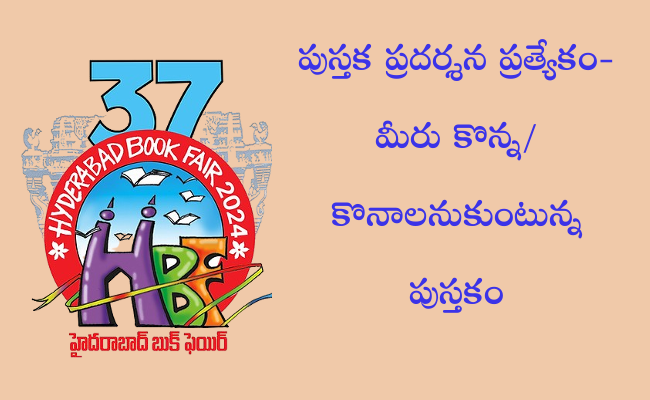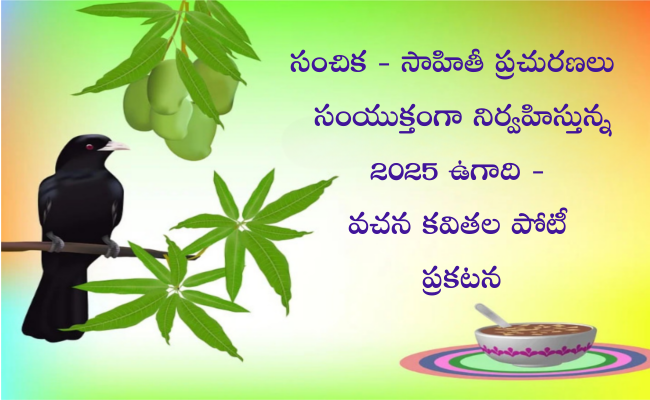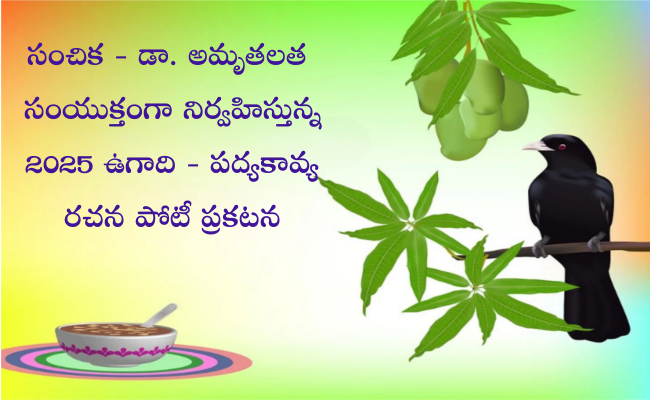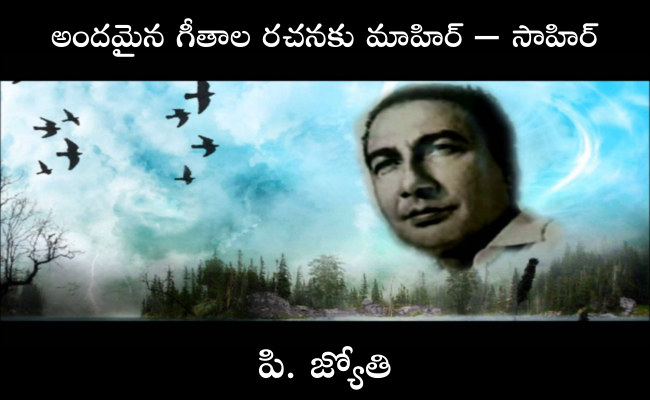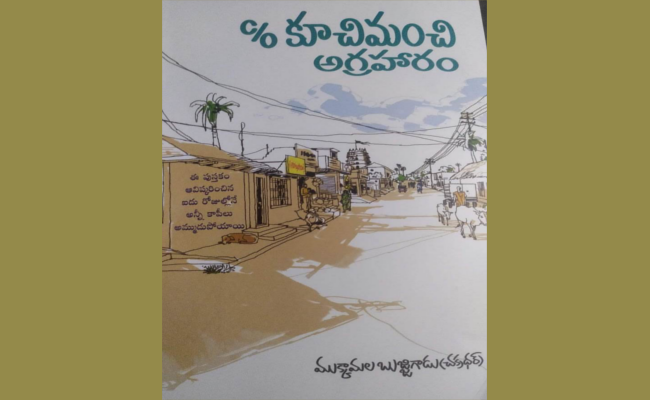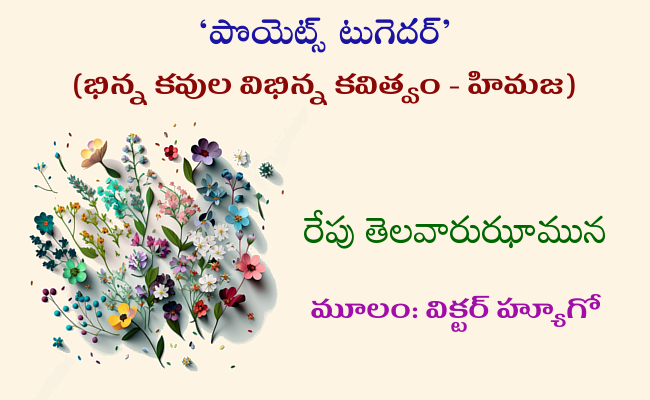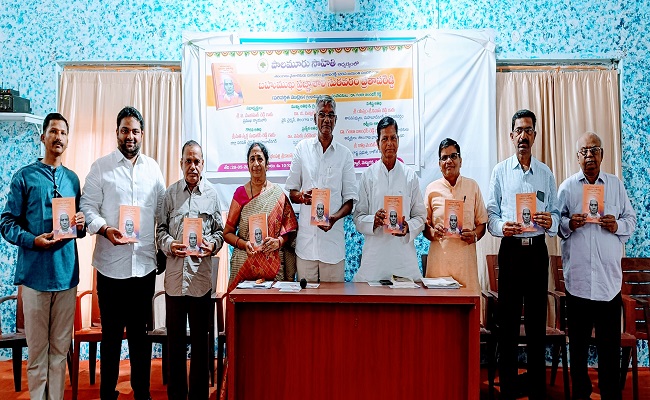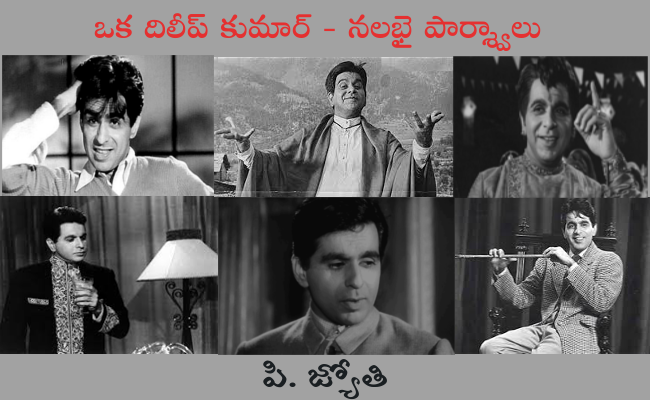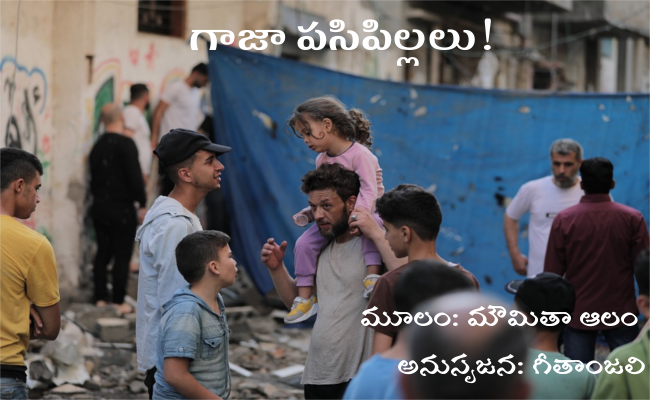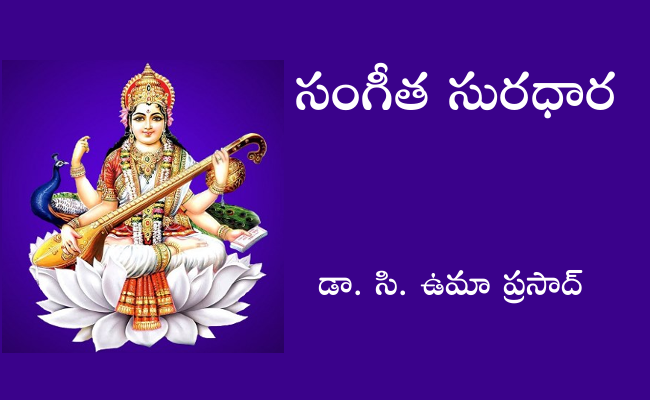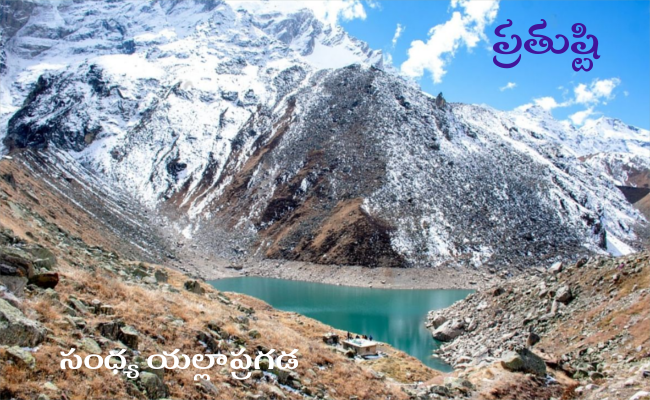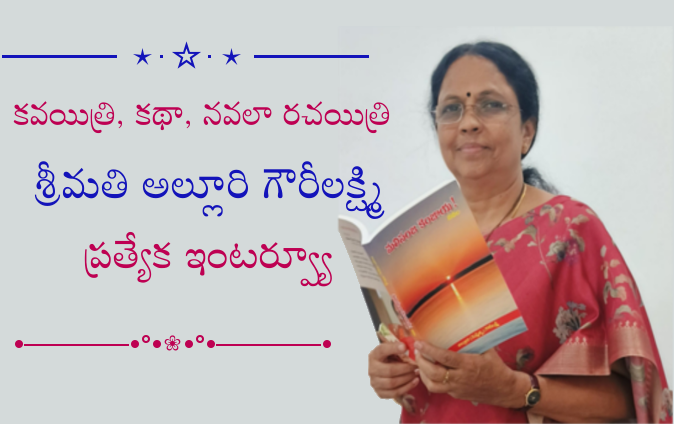(భారత ప్రధాని శ్రీ నరేంద్ర మోదీ గత సంవత్సరం ఆగస్ట్ 14ను దేశ విభజన భయానక జ్ఞాపకాల సంస్మరణ దినంగా ప్రకటించారు. ఆ పిలుపు ఆధారంగా సంచిక తెలుగు పాఠకుల కోసం అందిస్తున్న విశేష వ్యాస పరంపర ఇది. దేశ విభజనకు దారితీసిన కారణాలను మూలాలనుంచి పరిశోధించి, విశ్లేషిస్తూ కోవెల సంతోష్ కుమార్ రచిస్తున్న వ్యాస పరంపర ఇది.)
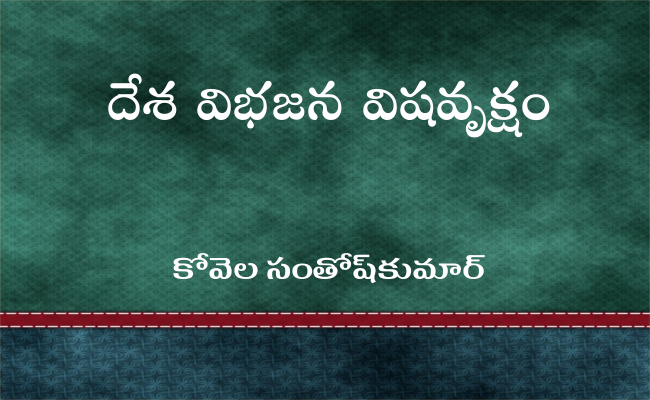
స్వాతంత్ర్యోద్యమంలో భాగంగా గాంధీ గారు చేపట్టిన సహాయ నిరాకరణ ఉద్యమం తరువాత ఖిలాఫత్ ఉద్యమం జరిగిందని కొందరు అభిప్రాయపడుతుంటారు. రెండూ ఒకేసారి జరిగాయని మరికొందరు అభిప్రాయపడతారు. కానీ, ఈ రెండూ కూడా ఒకదానికొకటి అంతస్సూత్రంగా ముడిపడి ఉన్నవన్న విషయాన్ని చరిత్రకారులు కన్వీనియంట్గా మరిచిపోయారు. ఖిలాఫత్ రెండో దశ అంతా కూడా హింసాత్మకమైంది. బెదిరింపులతో సాగిపోయింది. సహాయ నిరాకరణ ఆందోళన కూడా అందులో భాగంగానే సాగింది. అంతే తప్ప సహాయ నిరాకరణ అన్నది స్వాతంత్ర్యోద్యమంలో భాగంగా సాగింది ఎంతమాత్రం కాదు. గాంధీగారు ఖిలాఫత్ ఆందోళనను పూర్తిగా సమర్థించడమే కాకుండా ముస్లింలు ఖిలాఫత్ ఆందోళనను కొనసాగించడానికి వారికొక మార్గదర్శిగా, గైడ్గా, స్నేహితుడిగా వ్యవహరించారు. 1920 నాటి యంగ్ ఇండియా ఎడిషన్లో ఆయన ఇందుకు సంబంధించి తన అభిప్రాయాలను విస్పష్టంగా చెప్పారు.
“(1) In my opinion, the Turkish claim is not only not immoral and unjust, but it is highly equitable, only because Turkey wants to retain what is her own. And the Mahomedan manifesto has definitely declared that whatever guarantee may be necessary to be taken for the protection of the non Muslim and non-Turkish races, should be taken so as to give the Christians theirs and the Arabs their self-government under the Turkish suzerainty ;
(2) I do not believe the Turk to be weak, incapable or cruel. He is certainly disorganised and probably without good generalship. The argument of weakness, incapacity and cruelty one often hears quoted in connection with those from whom power is sought to be taken away. About the alleged massacres a proper commission has been asked for, but never granted. And in any case security can be taken against oppression;
(3) I have already stated that, if I were not interested in the Indian Mahomedans, I would not interest myself in the welfare of the Turks any more than I am in that of the Austrians or the Poles. But I am bound as an Indian to share the sufferings and trials of fellow-Indians. If I deem the Mahomedan to be my brother, it is my duty to help him in his hour of peril to the best of my ability, if his cause commends itself to me as just;
(4) The fourth refers to the extent Hindus should join hands with the Mahomedans. It is, therefore, a matter of feeling and opinion. It is expedient to suffer for my Mahomedan brother to the utmost in a just cause and I should, therefore, travel with him along the whole road so long as the means employed by him are as honourable as his end. I cannot regulate the Mahomedan feeling. I must accept his statement that the Khilafat is with him a religious question in the sense that it binds him to reach the goal even at the cost of his own life.”
(*Young India, 2nd June 1920.) (doctor Babasaheb Ambedkar writings and speeches vol 8. P. 147-148)
ఉద్యమాన్ని చేపట్టింది మహమ్మదీయులు. కానీ, దాన్ని చేపట్టింది మాత్రం గాంధీగారు. గాంధీ గారి సహకారాన్ని చూసి చాలామంది మహమ్మదీయులే ఆశ్చర్యపోయారు. నిజానికి ఖిలాఫత్ ఉద్యమాన్ని భారత దేశంలో చేపట్టడం లోని నైతికతను చాలామంది సందేహించారు. మనం చేపట్టాల్సిన స్వాతంత్ర్యోద్యమానికి, దీనికి సంబంధం ఏమిటని అనుమానం వ్యక్తం చేశారు. దీనివల్ల స్వరాజ్య ఉద్యమం నీరు గారుతుందని భయపడ్డారు. ఇదే విషయమై గాంధీగారికి నచ్చ చెప్పడానికి వారు చాలా ప్రయత్నించారు. కానీ గాంధీ గారు తన దగ్గరకు వచ్చిన వారినే ఒప్పించారు. ఖిలాఫత్ ఉద్యమంలో న్యాయం ఉన్నదని పదే పదే వాదించారు. వారి ఆందోళనలో భాగస్వామ్యం కావడం తన విధిగా చెప్పుకొచ్చారు. ఇందుకు పైన పేర్కొన్నట్టుగా యంగ్ ఇండియాలో ఆయన రాసిన వ్యాసంలోని భాగాలే ఉదాహరణ.
మరోవైపు సహాయ నిరాకరణ ఉద్యమం ఖిలాఫత్ ఉద్యమం ఎలా మొదలైందన్న విషయమై చాలామందికి స్పష్టత లేదని డాక్టర్ బీఆర్ అంబేద్కర్ స్వయంగా వెల్లడించారు. సహాయ నిరాకరణ ఉద్యమం స్వాతంత్ర్యోద్యమం కోసం జరిగింది కాదని చెప్పకనే చెప్పారు.
‘The part played by Mr. Gandhi in the Khilafat agitation and the connection between the Khilafat agitation and the Non-co-operation Movement has become obscure by the reason of the fact that most people believed that it was the Congress which initiated the Non-co-operation Movement and it was done as a means for winning Swaraj. That such a view should prevail is quite understandable because most people content themselves with noting the connection between the Non-co-operation Movement and the special session of the Congress held at Calcutta on 7th and 8th September 1920. But anyone, who cares to go behind September 1920 and examine the situation as it then stood, will find that this view is not true. The truth is that the non co-operation has its origin in the Khilafat agitation and not in the Congress Movement for Swaraj: that it was started by the Khilafatists to help Turkey and adopted by the Congress only to help the Khilafatists : that Swaraj was not its primary object, but its primary object was Khilafat and that Swaraj was added as a secondary object to induce the Hindus to join it will be evident from the following facts. The Khilafat movement may be said to have begun on 27th October 1919 when the day was observed as the Khilafat Day all over India. On 23rd November 1919 the first Khilafat Conference met at Delhi. It was at this session that the Muslims considered the feasibility of non-co-operation as a means of compelling the British Government to redress the Khilafat wrong. On 10th March 1920 the Khilafat Conference met at Calcutta and decided upon non-co-operation as the best weapon to further the object of their agitation. (doctor Babasaheb Ambedkar writings and speeches vol 8. P. 149)
ఇదీ అసలైన సంగతి. సహాయ నిరాకరణ ఉద్యమం మూలాలు ఖిలాఫత్ ఆందోళనలో మాత్రమే ఉన్నాయి కానీ, స్వరాజ్ ఉద్యమంలో ఎంతమాత్రం కాదు. ఏ దశలో కూడా స్వరాజ్యం అనేది వారి ఎజెండాలో ప్రధాన అంశంగా లేదు. హిందువులను తమ ఆందోళనలోకి తీసుకొని రావడానికి రెండో అంశంగా కేవలం కాగితాల్లో రాసుకోవడానికి పనికొచ్చేలా స్వరాజ్ అన్న మాటను చేర్చారు తప్ప సహాయ నిరాకరణ అన్నది కేవలం అంటే కేవలం ఖిలాఫత్ కోసమే చేపట్టింది. ఖిలాఫతిస్టులకు సహకరించడం కోసం మాత్రమే కాంగ్రెస్ పార్టీ ఈ సహాయ నిరాకరణ ఉద్యమాన్ని ముందుకు తీసుకొచ్చింది. ఇది కూడా గాంధీ గారి కారణంగానే.. అంతేకాదు.. 1919 అక్టోబర్ 27న ఖిలాఫత్ ఉద్యమం మొదలైందని భావిస్తారు. (ఆ తేదీని ఖిలాఫత్ డే అని పిలుస్తారు) కానీ.. 1920 మార్చి 10న కలకత్తాలో జరిగిన ఖిలాఫత్ కాన్ఫరెన్సులో మాత్రమే సహాయ నిరాకరణను ఆయుధంగా వాడాలని ఖిలాఫతీయులు తీర్మానం చేశారు. 1920 జూన్ 9న అలహాబాద్లో జరిగిన ఖిలాఫత్ కాన్ఫరెన్స్లో సహాయ నిరాకరణ గట్టిగా చేపట్టాలని మరోసారి తీర్మానం చేశారు. విస్తృత కార్యాచరణ కోసం కార్యనిర్వాహక కమిటీని కూడా నియమించారు. ఆ తరువాత అదే నెల 22న భారత్ వైస్రాయ్కి ఒక నోటీస్ ఇచ్చారు. 1920 ఆగస్టు 1 లోగా టర్కీ సమస్యలను పరిష్కరించకపోతే.. సహాయ నిరాకరణ చేస్తామని హెచ్చరిస్తూ నోటీస్ ఇచ్చారు. ఆ తరువాత 1920 జూన్ 30న ఖిలాఫత్ కమిటీ సమావేశమై సహాయనిరాకరణ ప్రారంభించింది. కలకత్తాలో జరిగిన కాంగ్రెస్ ప్రత్యేక సమావేశం ఖిలాఫత్ కమిటీ తీర్మానాలన్నింటినీ నిస్సంకోచంగా ఆమోదించింది. కానీ, కాంగ్రెస్ను తన నియంత్రణలో ఉంచుకోవడంలో గాంధీ గారు సక్సెస్ అయ్యారు. ఇందుకోసం ఆయనకు ఖిలాఫత్వాదులు సహకరించారని జాతీయవాదులు ఆరోపించారు. కలకత్తా సమావేశం మూడు రోజుల పాటు చర్చించి సహాయ నిరాకరణకు అనుకూలంగా ఓటేసింది. తీర్మానానికి అనుకూలంగా 144 ఓట్లు రాగా.. వ్యతిరేకంగా 132 ఓట్లు వచ్చాయి.
(స్పీచెస్ అండ్ రైటింగ్స్ ఆఫ్ ఎంకే గాంధీ, ఇంట్రడక్షన్ బై సీఎఫ్ ఆండ్ర్యూస్, మద్రాస్, 1922, పే.46-48)
ఈ తీర్మానం ఎంతమాత్రం స్వరాజ్ (స్వాతంత్ర్యం) కోసం కాదు.. ఖిలాఫత్ కోసం భారత ముస్లింలు చేస్తున్న ఆందోళనకు సహకరిస్తూ చేసిన తీర్మానం ఇది. ఒక సారి చదవండి..
*“In view of the fact that on the Khilafat question both the Indian and Imperial Governments have signally failed in their duty towards the Muslims of India and the Prime Minister has deliberately broken his pledged word given to them, and that it is the duty of every non-Muslim Indian in every legitimate manner to assist his Muslim brother in his attempt to remove the religious calamity that has overtaken him ; “And in view of the fact that, in the matter of the events of the April of 1919, both the said Governments have grossly neglected or failed to protect the innocent people of the Punjab and punish officers guilty of unsoldierly and barbarous behaviour towards them, and have exonerated Sir Michael O’Dwyer who proved himself directly responsible for most of the official crimes and callous to the sufferings of the people placed under his administration, and that the debate in the House of Lords betrayed a woeful lack of sympathy with the people of India, and systematic terrorism and frightfulncss adopted in the Punjab, and that the latest Vice regal pronouncement is proof of entire absence of repentance in the matters of the Khilafat and the Punjab ; “This Congress is of opinion that there can be no contentment in India without redress of the two aforementioned wrongs, and that the only effectual means to vindicate national honour and to prevent a repetition of similar wrongs in future is the establishment of Swarajya. “This Congress is further of opinion that there is no course left open for the people of India but to approve of and adopt the policy of progressive non-violent non-co-operation inaugurated by Mahatma Gandhi, until the said wrongs are righted and Swarajya is established.” Mrs. Annie Besant says : “It will be remembered that Mr. Gandhi, in March 1920, had forbidden the mixing up of non-co-operation in defence of the Khilafat with other questions ; but it was found that the Khilafat was not sufficiently attractive to Hindus”, so at the meeting of the All-India Congress Committee held at Benares on May 30 and 31, the Punjab atrocities and the deficiencies of the Reforms Act were added to the list of provocative causes.—(The Future of Indian Politics, p. 250.)
కాంగ్రెస్ లోని మితవాదులు పార్టీ అనుసరిస్తున్న తీరును తీవ్రంగా తప్పుపట్టారు. అనిబిసెంట్ ఈ చర్యను జాతీయ ఆత్మహత్యగా అభివర్ణించగా.. పీఎస్ శ్రీనివాస అయ్యర్ ఈ చర్య దేశానికి ఎంతో నష్టం చేస్తుందని ఆవేదన వ్యక్తం చేశారు. ఈయన మద్రాస్ ప్రెసిడెన్సీ అడ్వకేట్ జనరల్ గా పనిచేశారు. ఉద్యమాన్ని తిరస్కరిస్తూ సురేంద్ర నాథ్ బెనర్జీ లేఖ విడుదలచేశారు. మదన్ మోహన్ మాలవ్యా, వీఎస్ శ్రీనివాస శాస్త్రి మాత్రం ఖిలాఫత్ హింసాత్మకంగా మారే ప్రమాదం ఉన్నదని అనుమానం వ్యక్తం చేశారు. గాంధీ గారు మాత్రం ఖిలాఫత్ను, జలియన్ వాలాబాగ్ మారణ కాండను ఏకం చేసి సహాయ నిరాకరణను దేశ ప్రజల ముందుంచారు. తమ మత గౌరవ ప్రతిష్ఠలను కాపాడుకోకుండా భారతీయ ముస్లింలు ప్రవక్త అనుచరులుగా ఇక్కడ తలెత్తుకొని తిరగలేరని అందువల్లనే దానికి మద్దతు పలుకుతున్నానన్నారు. దీంతోపాటుగా పంజాబ్ ఉదంతాన్ని చివరి నిమిషంలో తీర్మానంలో చేర్చారు. బ్రిటిష్ ప్రభుత్వం చాలా అమానుషంగా ప్రవర్తించిందన్నారు.
“In view of the fact that on the Khilafat question both the Indian and Imperial Governments have signally failed in their duty towards Mussalmans of India, and the Prime Minister has deliberately broken his pledged word given to them, and that it is the duty of every non-Moslem Indian in every legitimate manner to assist his Mussalman brother in his attempt to remove the religious calamity that has overtaken him; ..And in view of the fact that, in the matter of the events of the April of 1919, both the said Governments have grossly neglected or failed to protect the innocent people of the Punjab and punish officers guilty of unsoldierly and barbarous behaviour towards them,.. This Congress is of opinion that there can be no contentment in India without redress of the two aforementioned wrongs and that the only effectual means to vindicate national honour and to prevent repetition of similar wrongs in future is the establishment of Swarajya. This Congress is further of opinion that there is no course left open for the people of India but to approve of and adopt the policy of progressive non-violent Non-co-operation inaugurated by Mr Gandhi until the said wrongs are righted and Swarajya is established ;” History of Freedom Movement in India Vol-3 R. C. Majumdar p.85-86)
గాంధీజీ తన ముస్లిం సంతుష్టీకరణ విధానం భావి స్వరాజ్య సాధనకు బీజం వేస్తుందని భావించి ఉండవచ్చు. కానీ ఇస్లాంవాదులు.. తమ ఖిలాఫత్ ఉద్యమంతో టర్కీ ఖలీఫాను పునఃస్థాపించడం ద్వారా ఇస్లాం ఆధిపత్యాన్ని కొనసాగించాలనే ఏకైక లక్ష్యంతోనే ముందుకు సాగారు. ఇందుకోసం గాంధీగారు వారికి ఒక ఉపకరణంగా ఉపయోగపడ్డారు. గాంధీ గారి నాయకత్వాన్ని అంగీకరిస్తున్నట్టు నటిస్తూనే.. మరోపక్క ఖిలాఫత్ కమిటీ కొందరికి ప్రత్యేక శిక్షణ ఇచ్చింది. ఉపన్యాసకులను తయారు చేసింది. రహస్య కార్యకర్తలను తయారు చేసింది. ప్రధాన నగరాలు, పట్టణాలు, నగర పాలికల్లో కార్యకర్తలు ఖాకీ దుస్తులు వేసుకొని కవాతు నిర్వహించేవారు. ‘ఇస్లాం ప్రమాదంలో పడింది’, ‘క్రైస్తవ మత శక్తుల కుట్రలు’ అంటూ నినాదాలతో కూడిన కరపత్రాలు, కవితలు, పద్యాలు, వ్యాసాలు అన్నీ ప్రజల్లో ఉద్రిక్తతలను రెచ్చగొట్టేలా చేస్తూ వచ్చాయి. ఇందులో గాంధీ గారు కోరుకున్నదేదీ జరుగలేదు. ఖిలాఫత్కు అనుకూలంగా ఉండటం వల్ల కాంగ్రెస్ పార్టీ అప్పటి వరకు సమీకరించిన నిధులన్నీ కూడా ఖిలాఫత్వాదుల పరమైపోయాయి. చివరకు లోకమాన్య బాలగంగాధర్ తిలక్ సేకరించిన రూ. కోటీ 5 లక్షల స్వరాజ్ ఫండ్ను కూడా గాంధీ గారు ఖిలాఫత్ కోసం వినియోగించడానికి అనుమతించేశారు. ఈ నిధుల వినియోగానికి సంబంధించి ఎవరూ ఎలాంటి లెక్కలు చూపించలేదు. ఈ డబ్బులతో యూరప్ వెళ్లిన ఖిలాఫత్ ప్రతినిధులు అక్కడ చేసిన ఖర్చులు, అనుభవించిన విలాసాలు అన్నీ ఇన్నీ కావు. 1921 నాటికి ఖిలాఫత్వాదుల ఉపన్యాసాల్లో వేడి పెరిగిపోయింది. హింసాత్మక నినాదాలు పెచ్చుమీరాయి. సైన్యంలో పనిచేసే ముస్లింలకు ఫత్వాలను జారీచేశారు. బ్రిటిష్ వారిపై తిరుగుబాటు చేసిన ఆఫ్గనిస్తాన్ సుల్తాన్ అమీర్ను.. భారత్ పై దాడి చేయాలంటూ ఆహ్వానించాలని కుట్ర చేశారు. ఒక వేళ అమీర్ వస్తే.. భారతీయ ముస్లింలు ఎలా తమ కర్తవ్యాన్ని నిర్వహించాలో 1921 ఏప్రిల్ 18 నాటి ఉపన్యాసంలో వివరించారు.
In April 1921 Muhammad Ali delivered a speech at Madras on the duties of Indian Muslims in the case of an Afghan invasion. He said that if the Amir invaded India aiming at its subjection, Muslims should resist the attack; but if his object were to defeat the oppressors of Islam and the Caliphate, then it would be the duty of Indian Muslims to withhold all assistance from the Government of India, and even to fight the good fight for Islam side by side with the Afghans. This opinion, of course, caused a good deal of uneasiness among Hindus. Probably for th at reason, sometime later Muhammad Ali formulated his advice in a more cautious way: if any Power waged war against the Government of India to make India free, they would not render help to the government but would simply watch the fight, since they did not believe in violence. This corresponded with Gandhi’s view, who wrote in Young India: “I would, in a sense, certainly assist the Amir of Afghanistan if he waged war against the British Government; that is to say, I would openly tell my countrymen that it would be a crime to help the government, which has lost the confidence of the nation to remain in power. On the other hand, I would not ask India to raise levies for the Amir.” But not even this reassured all Hindus; Malaviya was reported to scorn any idea of accepting Afghan help. (THE KHILAFAT MOVEMENT IN INDIA p.,129-130)
బ్రిటిష్ ప్రభుత్వంపై దండెత్తడానికి వస్తే.. అమీర్కు నేను కూడా సహకరిస్తాను. ప్రజల విశ్వాసం కోల్పోయిన ఈ ప్రభుత్వానికి సహకరించడం నేరమవుతుందని నా ప్రజలకు నేను బాహాటంగా చెప్తున్నానని యంగ్ ఇండియాలో గాంధీజీయే స్వయంగా రాశారు. ఇక్కడ ఖిలాఫత్ కోసం గాంధీగారు యుద్ధాన్ని కూడా అంగీకరించినట్టయింది. కానీ, ఏ ఒక్క ఖిలాఫతీయుడు కూడా హిందువులతో సమరస భావంతో ఉండాలని కలలో కూడా అనుకోలేదు. సహాయ నిరాకరణ ఉద్యమం అన్నది భారత దేశంలో సైతం ఇస్లాం మరింత బలపడటానికి దోహద పడాలన్న ఆలోచనలతోనే సాగింది. ఇందులో భాగంగానే ఉలేమాలు తమ కార్యాచరణను రూపొందించుకున్నారు. శాసన సంస్థల స్థానంలో ఉలేమాల కమిటీలు ఏర్పాటు చేయ పూనుకున్నారు. న్యాయస్థానాల స్థానంలో షరియా కోర్టులు రావాలని భావించారు. ప్రభుత్వ పాఠశాలల స్థానంలో దార్ ఉల్ ఉలుమ్లు మదరసాలు రావాలని పిలుపునిచ్చారు. అచ్చంగా ఇవే క్రమంగా భావి భారత దేశంలో ముస్లిం పర్సనల్ లాబోర్డు, షరియా చట్టాల అమలు, మదరసాల వంటివి రాజ్యాంగంలో వచ్చి చేరాయి.
(సశేషం)



